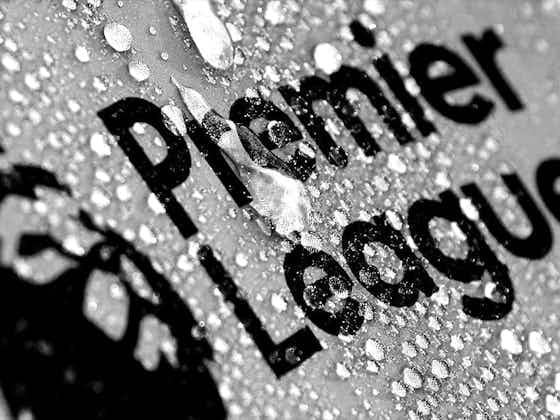The Mag
·12 Maret 2023
Premier League official guidance – How Newcastle United would/wouldn’t qualify for Europe this season

In partnership with
Yahoo sportsThe Mag
·12 Maret 2023

The Premier League have published guidance on how clubs will qualify for Europe this (2022/23) season.
The guidance (see below) lays out for Newcastle United fans what Eddie Howe and his players need to do, with regard to qualifying for the Champions League, Europa League and the Europa Conference League.
There are a ‘few’ complications, if this happens if that happens, things beyond Newcastle United’s control. After you have checked through this ‘straightforward’ Sunday morning read, I will then try to pick out the key factors that could affect Newcastle’s chances (or course, all Newcastle United have to do to guarantee Champions League football regardless, is to win all of their last 14 Premier League games!).
A breakdown of how Premier League clubs can qualify for the UEFA Champions League, Europa League and Europa Conference League.
Below is a breakdown of how Premier League clubs can qualify to play in UEFA competitions, along with which tournament each qualified club will play in.
Ordinarily, the maximum number of English teams in UEFA competitions is seven.
(Please note UEFA reserves the right to change the conditions of the access list so these criteria can be subject to change.)
UEFA Champions League (UCL) qualification
In normal circumstances, four UCL places are given to English clubs who fulfil the following criteria:
The top four teams in the Premier League qualify for the group stage proper.
UEFA Europa League (UEL) qualification
In normal circumstances, two UEL places are given to English clubs who fulfil the following criteria:
The fifth-placed team in the Premier League qualify for the group stage proper.
The winners of the FA Cup qualify for the group stage proper.
The EFL Cup winners qualify for the playoff stages.
Where these qualifications changes
a) If the FA Cup winners finish in the top five of the Premier League, their UEL group stage place will go to the next-highest ranked team not qualified for UEFA competitions in the Premier League.
b) If the EFL Cup winners finish in the top five of the Premier League (or top six if (a) happens), their UECL playoff place will go to the next-highest ranked team not qualified for UEFA competitions in the Premier League.
How does winning UCL/UEL affect qualification?
Should a Premier League club win the UEFA Champions League they will automatically qualify for the group stage of next season’s competition regardless of their league finishing position.
Should a Premier League club win the UEFA Europa League they will automatically qualify for the group stage of next season’s UEFA Champions League regardless of their league finishing position.
If a club win the UEFA Champions League or UEFA Europa League and finish in the top four, their qualification for the UCL through their league position is not transferred to another team.
A maximum of five Premier League teams are eligible for UEFA Champions League qualification.
In the event that a Premier League club win the UEFA Champions League and another win the UEFA Europa League and neither of these clubs finish in the top four of the Premier League, the club lying fourth in the table will drop into the UEFA Europa League group stage.
If a Premier League club win the UEFA Champions League and another win the UEFA Europa League and neither have qualified for UEFA competitions through their league positions or by winning the FA Cup or EFL Cup, they will qualify for the UEFA Champions League and the club finishing fourth in the table will drop into the UEFA Europa League group stage.
This UEFA Europa League group stage place will be in addition to the one for the club finishing fifth and to the places in the UEFA Europa League and UEFA Europa Conference League for the FA Cup and EFL Cup winners (or for the highest-ranked clubs not qualified for UEFA competitions in the Premier League if the FA Cup and EFL Cup winners have already qualified for UEFA competitions through their league position).’
Man Utd winning the League Cup
It obviously wasn’t a good result for Newcastle United at Wembley BUT with Man U set to surely finish top five as a minimum, the Europa Conference League spot that would normally go to the winners of the League Cup, will instead go to a PL club based on Premier League position.
FA Cup winners finish top five
So, if the FA Cup winners also end up finishing top five in the Premier League, the Europa League spot doesn’t go to the FA Cup runners-up, it will go to a PL club based on league position.
Man City and Man U are both in the last eight of the FA Cup so if either of them won the FA Cup final at Wembley, then almost certainly they would finish top five as well, ensuring that Europa League place would then be based on league position. Brighton and Fulham are also still in the FA Cup and could potentially finish top five and win the FA Cup final at Wembley.
As for the various connotations based on how Premier League clubs do in this season’s European competitions and how that could potentially change things, based on the guidance above, I will let you work out for yourselves!
As far as I can see though, I think, the worst thing that could happen with regard to others hoping to qualify through league position, is if Chelsea won the Champions League AND Man Utd won the Europa League AND both finished outside of the Premier League top four. As I am reading it, that would then mean the fourth placed PL side would be in the Europa League and not the Champions League, as only a maximum of five English clubs can qualify for the Champions League.






























































